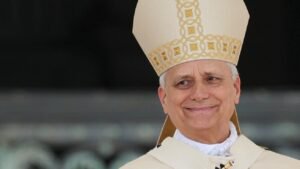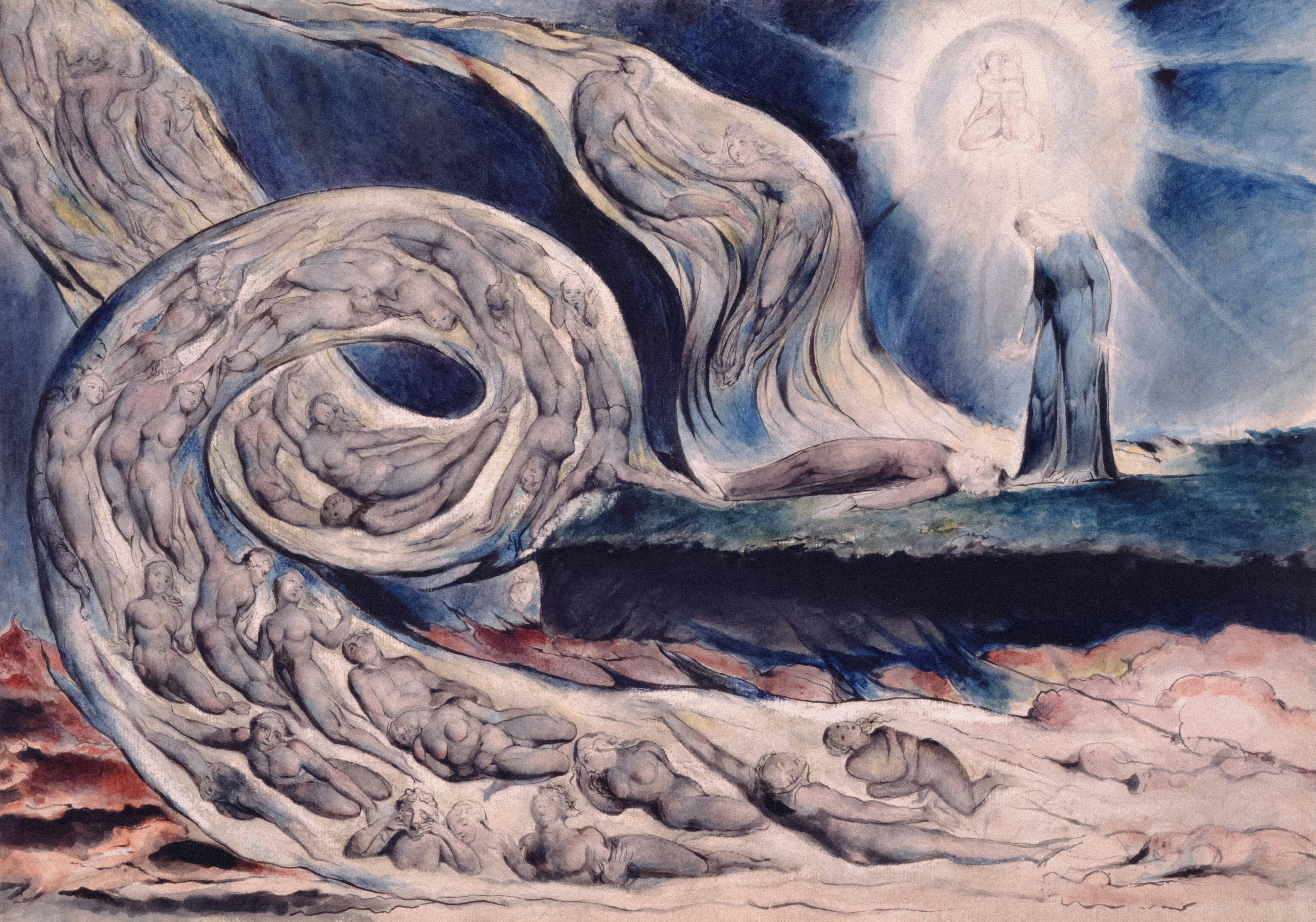Catholic Priest Critiques Papua New Guinea’s Christian State Declaration: A ‘Cosmetic’ Change?

Photo by Benjamin Elliott on Unsplash
Understanding the Constitutional Amendment
In recent developments, the Papua New Guinea Parliament has passed a constitutional amendment that formally recognizes the nation as a Christian state. This significant alteration in the legal framework reflects a growing inclination towards embedding religious identity within the governance structures of the country. The amendment poses questions about the implications for societal unity and the diverse beliefs of the Papua New Guinean population.
The key points of the amendment include explicit declarations that designate the Christian faith as an integral aspect of national identity. It seeks to reinforce the role of Christianity in public life and governance, hinting at a potential prioritization of Christian values in legislative processes. Furthermore, this amendment introduces provisions that could influence how laws are interpreted and enacted, adhering to Christian teachings and principles.
Understanding the historical context is essential to evaluate the importance of this declaration. Papua New Guinea is a nation characterized by a multitude of ethnic groups and religions. The amendment’s recognition of Christianity raises essential discussions regarding coexistence with other faiths and the challenges of maintaining a secular governance structure. This duality presents the risk of alienating non-Christian communities, potentially leading to social tensions.
Moreover, the effect of this constitutional amendment extends beyond immediate legal implications. It signals a shift in how the government interacts with its citizens based on religious identity, thereby shaping the collective national narrative. Observers have critiqued this move as a “”cosmetic change,”” suggesting that while it establishes a formal acknowledgment of Christianity, it may not genuinely address deeper societal issues. The long-term ramifications of this amendment on democracy, religious freedom, and civic inclusiveness in Papua New Guinea remain to be seen.
The Catholic Priest’s Perspective
The recent amendment declaring Papua New Guinea a Christian state has sparked significant discussion, particularly among religious leaders. One notable voice in this discourse is that of a Catholic priest who has openly critiqued the change, describing it as “cosmetic” in nature. His argument revolves around the notion that while the amendment may appear to endorse Christian values at a governmental level, it fails to deliver substantive changes that reflect a genuine commitment to faith-based governance.
The priest asserts that the declaration does not address the underlying social issues that plague Papua New Guinea, such as corruption, poverty, and violence. Rather than fostering a society rooted in Christian principles, the amendment could potentially serve as a superficial nod to faith while allowing the status quo to persist unchanged. In his view, the true essence of Christianity should guide legislative actions and social policies, ensuring that they align with moral teachings and promote the dignity of every individual.
Historical Context of Religion in Papua New Guinea
The journey of religion in Papua New Guinea (PNG) is deeply intertwined with the nation’s historical development, particularly during the colonial era. The arrival of European missionaries in the late 19th and early 20th centuries introduced various Christian denominations to the diverse cultural backdrop of PNG. Initially, these denominations primarily sought to convert the indigenous population, leveraging their unique understanding of local customs and languages to facilitate the spread of Christianity. Over time, these denominations, including Catholic, Anglican, Lutheran, and United churches, played notable roles in shaping both the spiritual and socio-political landscape of the region.
As colonization progressed, the influence of Christianity extended beyond mere religious practice; it became a powerful vehicle of change within PNG’s societal values. Mission schools and churches established not only provided education but also introduced Western legal concepts and societal norms that significantly altered traditional lifestyles. The missionaries’ efforts to implement these new values contributed to the evolution of local governance and societal structures, embedding a Christian ethos in the community.
Following independence in 1975, PNG’s constitution recognized the nation as a Christian state, acknowledging the critical role that Christianity played in the country’s identity. This constitutional declaration was a formal recognition of the historical influence that various denominations had wielded in shaping national unity and social cohesion. Yet, the governance framework also reflected the complexities of integrating multiple indigenous cultures and belief systems within a predominantly Christian framework. The resulting national narrative is a tapestry of evolving religious identities, necessitating careful navigation of the intersections between state laws and religious influence, which continues to be a topic of debate in contemporary governance.
In essence, the historical relationship between religion and the state in Papua New Guinea illustrates a significant, albeit complex, evolution marked by both cooperation and contention as the nation seeks to balance its Christian heritage with the inherent diversity of its people.
Public Opinion on the Amendment
The recent constitutional amendment in Papua New Guinea declaring the nation as a Christian state has elicited a spectrum of opinions among its citizens. Surveys conducted by various organizations indicate that public sentiment is divided. While a significant segment of the population supports the amendment, believing it reinforces the country’s cultural identity and moral values, others view it as a superficial alteration that may lead to marginalization of non-Christian beliefs.
A survey by the Papua New Guinea Institute of National Affairs highlighted that approximately 57% of respondents welcomed the declaration, claiming it solidifies Papua New Guinea’s Christian heritage. Respondents noted that this alignment might foster unity and provide a moral framework in addressing social issues such as crime and corruption. On the other hand, around 28% of surveyed individuals expressed concern regarding the implications for religious freedom, fearing that the amendment could marginalize non-Christian communities and create divisions among the populace.
Interviews with representatives from various religious organizations further illustrate the complex nature of public opinion. While many church leaders in Papua New Guinea have supported the amendment as a means of reaffirming the country’s Christian values, others have criticized it as exclusionary and potentially detrimental to social cohesion. Some advocates for religious pluralism claim that the move could provoke tensions among different faiths, thereby undermining the principles of tolerance and acceptance, which are crucial for a multicultural society.
Moreover, grassroots organizations have mobilized to voice their opposition, emphasizing that a constitutional declaration is merely a “cosmetic” change that does not address the pressing issues faced by citizens. They argue that instead of focusing on religious identity, the government should prioritize essential services such as education and healthcare, which are foundational to national development.
Implications for Governance and Policy
The constitutional recognition of Papua New Guinea as a Christian nation carries significant implications for governance and public policy development. This declaration, while largely symbolic, can influence the way laws are formulated, how public services are delivered, and how human rights are approached within the country. By defining the state as Christian, the government may prioritize legislation that reflects Christian values and beliefs, potentially affecting various sectors such as education, healthcare, and social services.
In the realm of education, for instance, this declaration might encourage the integration of Christian teachings into public schooling systems. Policymakers may advocate for the inclusion of religious instruction in curricula, which could reshape the educational landscape in a nation where such a shift could have widespread implications. Furthermore, the emphasis on a Christian identity may affect funding and resources allocated to educational institutions, fostering an environment that attracts or deters certain types of educational initiatives.
Similarly, in terms of social services, public policy may increasingly reflect Christian doctrines regarding family values, social responsibility, and community welfare. Analysts suggest that this could lead to a prioritization of services that align with Christian ethics, potentially at the expense of more secular approaches to social issues. Additionally, there is a concern that minority groups and non-Christian citizens may face marginalization or reduced access to essential services, which raises significant human rights considerations.
Political analysts on governance in religiously influenced states argue that while a Christian state declaration presents opportunities for moral guidance in policy, it also risks fostering an exclusionary environment. A delicate balance must be achieved to ensure that the rights of all citizens are upheld, regardless of their religious beliefs. This transition towards a more overtly Christian governance framework warrants ongoing scrutiny to assess its long-term effects on the democratic fabric of Papua New Guinea and the welfare of its diverse population.
Comparative Analysis with Other Nations
Across the globe, various nations have declared themselves as Christian states or maintained significant relationships between church and state, which allow for a broader understanding of the implications of such declarations. In Europe, for instance, Sweden is known for its Lutheran heritage and a state church system that, despite the formal separation of church and state, still influences cultural and moral aspects of governance. This historical connection raises questions about governance challenges, as legislative decisions are sometimes affected by religious sentiments, prompting debates related to secularism and minority rights.
In contrast, Ethiopia represents a unique case where the Ethiopian Orthodox Church has deep historical ties with the state. The church not only informs the national identity but also plays a vital role in community cohesion. However, this intertwining has occasionally led to sectarian tensions, notably between Orthodox Christians and other religious communities, highlighting the potential for governance challenges that arise from such declarations. This situation mirrors Papua New Guinea’s own challenges following its recent Christian state declaration, prompting discussions on how such an identity affects not only unity but also social harmony.
On the other hand, the Philippines illustrates a different approach where Catholicism, although not established as a state religion, significantly shapes national politics and culture. The strong influence of the Catholic Church on social policies can lead to friction between the church’s moral teachings and contemporary political demands. This phenomenon can also be observed in Papua New Guinea, where cultural values and religious beliefs intertwine to influence political stability and the effectiveness of governance.
These examples provide a useful lens through which to examine PNG’s declaration as a Christian state. The diverse outcomes in governance and social dynamics in these nations serve as important considerations for Papua New Guinea as it navigates the complexities associated with its Christian identity and its implications for state affairs.
The Role of Other Faiths and Secularism
The recent constitutional amendment in Papua New Guinea, positioning the nation as a Christian state, raises pertinent questions about the treatment and recognition of non-Christian faiths and secular groups. This declaration may have profound implications for religious pluralism, interfaith relations, and the civil rights of individuals who identify with minority religions or adhere to secular philosophies. As Papua New Guinea embraces a Christian identity, there is a concern that these changes could lead to marginalization of non-Christian communities and habitual practices.
Historically, Papua New Guinea has been home to a rich tapestry of diverse religious beliefs, ranging from indigenous spiritual practices to various organized religions, including Buddhism, Islam, and Hinduism. The newfound recognition of Christianity as foundational to the national identity might inadvertently create an environment that is less welcoming for these minority faith groups. This place within a Christian framework could restrict their representation in public discourse, policy, and education, leading to a reduction in religious freedom.
Furthermore, the elevation of Christianity could potentially foster division rather than unity among different faith groups. For instance, as government policies begin to reflect a Christian ethos, secularist organizations and adherents might find their positions further challenged. It becomes critical that interfaith dialogues remain robust to maintain healthy relations among diverse communities. Advocating for the rights of all faiths, including secular ideologies, is essential for fostering a society where pluralism thrives, contributing to the overall social coherence.
In conclusion, the declaration of Papua New Guinea as a Christian state necessitates vigilant consideration for the rights and treatment of other faiths and secular groups. Ensuring the continued coexistence of diverse beliefs will be a crucial task for government entities and societal leaders alike, aimed at preserving the nation’s commitment to religious diversity and fundamental human rights.
Future Prospects and Challenges
The recent amendment that designates Papua New Guinea as a “Christian State” has implications for the future of governance and societal cohesion in the country. As the nation navigates this declaration, it faces the challenge of aligning its religious foundations with the principles of modern governance. Central to this challenge is the need for the government to foster inclusivity among its diverse population, which includes various religious beliefs and cultural practices beyond Christianity.
While the amendment aims to strengthen the role of Christianity in public life, it raises pertinent questions about the balance between state and religion. In fostering a Christian identity, there is a risk of alienating non-Christian citizens, which could lead to societal divisions. The government must therefore confront the complexity of addressing religious commitments while ensuring that all citizens’ rights and freedoms are respected. Political leaders face pressure to demonstrate that while the country holds primarily Christian values, it is also a state committed to human rights and equality.
Furthermore, different segments of society will have varying expectations regarding the government’s role in this context. Some may advocate for a state that actively promotes and supports Christian values in education and policy, while others could argue for a more secular approach that protects minority rights. This divergence of opinions underscores the need for dialogue and a clear understanding of how governance can evolve in a way that inclusively represents all citizens, regardless of religious affiliation.
Addressing these expectations can be complex, yet it is crucial for sustainable peace and unity within Papua New Guinea. The future will demand that the government not only articulates a vision that incorporates religious declarations but also lays out strategies for effective governance that enhances social harmony and respects individual beliefs.
Conclusion: A Shift in Paradigms?
In evaluating the recent declaration of Papua New Guinea as a Christian state, the insights gathered reveal a complex interplay between symbolism and substantive change. The criticisms articulated by the Catholic priest underscore a prevalent sentiment among some observers who view this declaration as a superficial adjustment rather than a meaningful advancement. The concerns expressed highlight a critical perspective that questions whether the amendment represents an authentic commitment to the principles of Christianity or merely serves as a façade to appease certain factions within the populace.
Moreover, the discussions surrounding this declaration raise fundamental questions about the relationship between religion and governance. While it may be argued that declaring a Christian identity could foster unity and encouragement of moral values, critics like the Catholic priest urge the nation to reflect deeper on how these ideals translate into policy and practice. The essence of Christianity, which promotes love, peace, and justice, should ideally inform the legislative framework and social structures of Papua New Guinea, transcending rhetoric and performing an essential role in everyday life.
The depiction of Papua New Guinea merely adopting a “Christian state” label risks reducing this pivotal moment to a mere rhetorical flourish, distancing the realities faced by its citizens from the intended virtues of the declaration. In contemplating the future implications of this amendment, it is essential for policymakers, religious leaders, and citizens alike to engage in earnest discussions about what it means to live in a state that identifies with Christian values. Engaging with the lived experiences of the populace will be vital in ensuring that these ideals are genuinely reflected in governmental practices and societal relations.
Therefore, while the declaration may be perceived as a notable step, its true significance lies in the actions that follow. The focus must shift from mere declarations back to the transformative potential inherent in the tenets of Christianity, guiding Papua New Guinea toward a more just and equitable future.











Leave a Reply
You must be logged in to post a comment.